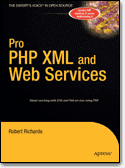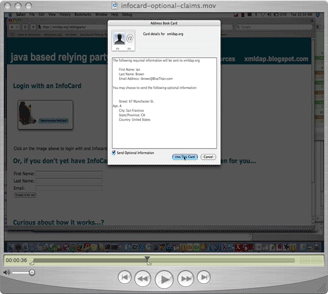Doc's Vendor Relationship Management concept is getting clearer and stronger all the time. And now I see how and why it ties in to his “Markets are relationships” mantra, eclipsing his tremendously influential, “Markets are conversations”.
For me it's an aha moment. Sort of like figuring out that you are part of a relationship problem, and not simply a victim of it. Maybe we really can use technology to move even large companies towards rich relationships with individual customers, responding to an expression of their needs that they own and control.
In the old world, only corporations and governments had computers to help sort out their problems. That created a transient situation I have called historically upside down.
In the new world, individual people can have their own computerized systems helping them just as enterprises do. And most interesting, these systems can potentially interwork with those run by enterprises.
Doc's VRM proposal is an example of this. And what's great about his explanation is that we can see how both sides of the relationship end up benefiting. Have my robot do lunch with your robot – they'll come up with something. Here's Doc's piece:
Responding to what what Dave says here (which enlarges on what I said here) Kim Cameron replies, “This is exciting stuff – I'm talking Identity Big Bang content.” He adds,
The way I read Doc¹s ideas, he's talking about a real inversion of what advertising is and means. Instead of suppliers advertising what they want us to buy (by spamming our attention), we'll advertise what WE want to buy, and suppliers will make us offers. Sounds a lot more efficient to me. What am I missing? Why doesn't everyone want to do this?
Yes, except I also think it's important not to understand VRM (Vendor Relationship Management — the reciprocal of CRM, or Customer Relationship Management) as the reciprocal of advertising. Or the opposite of advertising. Or even the opposite of marketing. I don't think it helps to frame it in terms of any of those things.
It's something new. Rather than advertise, we notify. We assert. We express. I don't care what we call it, as long as what we do doesn't come across as individuals being just as bad-mannered as advertising has been for the duration.
Kim also says,
Maybe because a lot of what advertising is about is getting us to want things we don¹t know we want. But even that can be done in other better ways too. Like by producing cool things and having them explode into discussion. Doc said this too, didn¹t he: Markets are conversations.
Also true. But VRM isn't just about conversation. It's about relationships. And transactions.
We've always understood markets in terms of transactions. We wouldn't have markets (or economics, or business schools), without them. And lately we've begun to understand markets in terms of conversations as well. But relationships remain a wild frontier.
On the vendor side we've talked and coded ourselves into assuming we have relationships with customers. But CRMs don't relate. Worse, they are delusional about relating. Here's how Wikipedia currently puts it:
Customer relationship management (CRM) covers methods and technologies used by companies to manage their relationships with clients. Information stored on existing customers (and potential customers) is analyzed and used to this end. Automated CRM processes are often used to generate automatic personalized marketing based on the customer information stored in the system.
Wow. Can't wait to make love to that.
When you read down through that whole Wikipedia entry, you see how CRMs actually mean to be nice, to respect the customer, yada yada. The problem is, they bear the full burden of a relationship that doesn't exist, because there is nothing much to relate to on the other side. Or worse, the only mechanism for relationship is the one that facilitates the transaction: the credit card.
We need to equip the customer with something that facilitates relating to vendors — and takes some of the relationship burden off the vendors as well.
The relating may be enduring or transitory. It may involve disclosing some identity information; or it may keep us anonymous (while disclosing other information that's useful). It must, however, be useful to both sides. We don't have that with advertising (which, aside from all the waste it involves, brings the wrong perspective and sets of assumptions to the problem).
I like Dave's prototype idea for “a movie review system where I own and control my data”, because it's a great first step. It's says to Vendor CRMs, “This is my data, and it's independent of your silo. And that makes it more valuable to both of us than it would be if it lived in your silo alone.”
We need to discover some what VRM can do before the rest of it can become clear. Which it will. Inevitably.
Bonus link.
Very strong stuff – and has such a nice balance.



 Over the last while I've been lucky enough to have some conversations with a php web services guru from the northeast called Rob Richards. He asked some very good questions about self-issued identities, which I wrote up and will be posting, and also answered a number of my questions about PHP.
Over the last while I've been lucky enough to have some conversations with a php web services guru from the northeast called Rob Richards. He asked some very good questions about self-issued identities, which I wrote up and will be posting, and also answered a number of my questions about PHP. 

